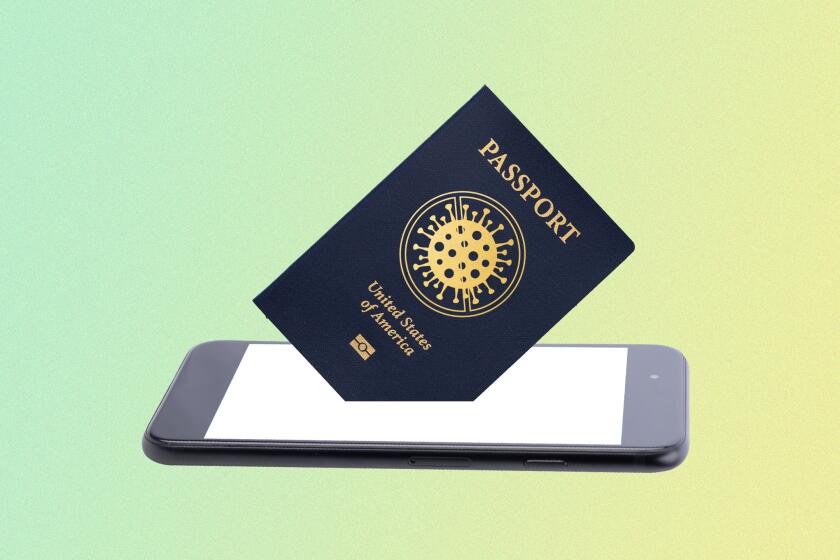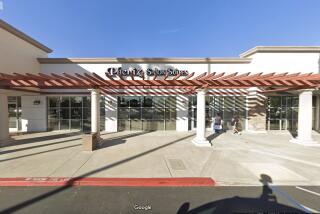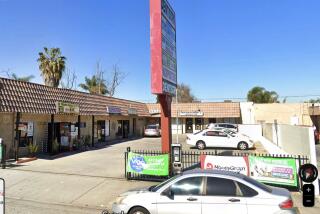California bar owner charged with selling fake COVID-19 vaccination cards
- Share via
The owner of a San Joaquin County bar was arrested and charged this week with selling fraudulent COVID-19 vaccination cards, authorities said.
The arrest Tuesday of Todd Anderson, 59, followed an investigation by the California Department of Alcoholic Beverage Control, which began in April after the agency received complaints that fake cards were being sold at the Old Corner Saloon in Clements.
Undercover agents were able to purchase four fake vaccination cards at the bar for $20 apiece, according to ABC spokesman John Carr, who noted that it was the first case of its kind the agency has investigated.
The San Joaquin County Sheriff’s Department assisted with the arrest, during which Anderson was found to be in possession of “materials related to the distribution of fraudulent COVID-19 vaccination cards” and an unregistered firearm, officials said.
Anderson was charged with three felonies, including forgery of a government seal, identity theft and having an unregistered firearm in a public place, according to Elisa Bubak, a spokeswoman for the San Joaquin County district attorney’s office.
Bubak said the identity theft charge was attached because Pfizer, Moderna, the Centers for Disease Control and Prevention and other entities were all represented on the vaccination cards. Anderson also was charged with one misdemeanor count of falsifying medical records.
“Where there’s an opportunity and a need, people fill it,” Bubak said of the case.
In a statement, San Joaquin County Dist. Atty. Tori Verber Salazar said it was “disheartening to have members in our community show flagrant disregard for public health in the midst of a pandemic.”
“Distributing, falsifying or purchasing fake COVID-19 vaccine cards is against the law and endangers yourself and those around you,” she added.
The arrest comes amid a larger conversation about “vaccine passports” and other efforts to require people to provide COVID-19 vaccination records for things like concerts, sports, travel and even employment. The concept has been met with fervent opposition, even though inoculation records for other infectious diseases have long been required in certain sectors — including school and travel.
We explain what vaccine passports are, how they work, where they’ve been implemented, and why some people object to them.
In recent weeks, marketplace websites such as OfferUp, EBay and Shopify also have come under scrutiny as potential outlets for the sale of fake cards, with the National Assn. of Attorneys General issuing letters to the companies condemning the practice.
“Allowing users of your platform to market and sell fake vaccine cards is a threat to residents of our states,” the association wrote in an April 23 letter to OfferUp, which was signed by Matthew Rodriquez, California’s acting attorney general at the time. The letter also demanded that the site remove posts offering fraudulent vaccination cards for sale and retain information about the posters.
A spokesperson for OfferUp confirmed Thursday that posts with vaccination cards are prohibited on the site and that the company typically finds and removes them in less than an hour.
But combating counterfeit vaccination cards may be an uphill battle. In March, the FBI issued a public service announcement warning that the sale of fake cards with a government logo on them is a crime and urged people not to post photos of their cards on social media. Already, tens of thousands of people have shared images of their cards on sites like Facebook and Instagram.
Anderson, the Clements bar owner, has been released on $380,000 bail and will be arraigned May 18, according to the D.A.’s office. The ABC is also considering disciplinary action against the bar, Carr said, which could include the suspension or revocation of its liquor license.
Calls to the saloon Thursday went unanswered.
More to Read
Sign up for Essential California
The most important California stories and recommendations in your inbox every morning.
You may occasionally receive promotional content from the Los Angeles Times.












